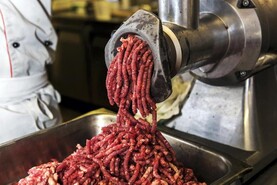Last week, I was relieved to hear a senior industry figure assure me that the animal products industry was in the process of putting together a major initiative to counter the current campaigns of vegans and, to a lesser extent, vegetarians. Such a concentrated effort is badly needed.
The vision of a meat- and milk-free world is gaining too much unchallenged traction from US and European activists.
To be anti-meat and milk is being portrayed as being pro-health, pro-environment and pro-animal welfare.
Each of these assertions can be challenged but commentators can be lazy and advocates can be messianic in their views and methods.
Europe and European farmers have an excellent story to tell in terms of the ever-increasing human life expectancy that accompanies a balanced diet
If there is reluctance to face into the challenges then we will, at a minimum, lose market share, especially in the western world. Already we see Irish multinational food companies investing in meat-free startup firms to ensure they are not left behind.
Europe and European farmers have an excellent story to tell in terms of the ever-increasing human life expectancy that accompanies a balanced diet. The FAO (Food & Agriculture Organisation of the United Nations) has consistently drawn attention to the importance of animal protein in developing the physical and mental well-being of populations in the third world. The human health argument in favour of recommended intakes of meat and dairy products is the easiest and most compelling.
As regards animal welfare, the strides in European legislation in recent years have been significant and consistent
The recent publicity surrounding the low risk of bowel cancer from red and processed meat was exaggerated and sloppily reported, with minimal analysis in Ireland of the underlying facts.
As regards animal welfare, the strides in European legislation in recent years have been significant and consistent. In general, it can be confidently said that animal welfare abuses in European farm animal production are the exception rather than a routine occurrence in farm husbandry.
The latest emphasis is on the environmental impact of animal production – especially the methane production. Regardless of how the importance of methane is addressed in climate change negotiations, Teagasc and other research have shown that significant reductions in greenhouse gas emissions are possible through both feeding and slurry handling options. There is also an argument for encouraging beef production on traditional grasslands.
But none of that will prevent huge digital and tech fortunes being poured into research on meat and milk replacement foods. We are already seeing some of the results of this investment. Our industry has no option but to cohesively present the compelling case that exists in our defence.
Read more
Long read: going organic through the fusion of grassland and cereals
Dairy markets: big declines in New Zealand and Dutch milk production for March
Last week, I was relieved to hear a senior industry figure assure me that the animal products industry was in the process of putting together a major initiative to counter the current campaigns of vegans and, to a lesser extent, vegetarians. Such a concentrated effort is badly needed.
The vision of a meat- and milk-free world is gaining too much unchallenged traction from US and European activists.
To be anti-meat and milk is being portrayed as being pro-health, pro-environment and pro-animal welfare.
Each of these assertions can be challenged but commentators can be lazy and advocates can be messianic in their views and methods.
Europe and European farmers have an excellent story to tell in terms of the ever-increasing human life expectancy that accompanies a balanced diet
If there is reluctance to face into the challenges then we will, at a minimum, lose market share, especially in the western world. Already we see Irish multinational food companies investing in meat-free startup firms to ensure they are not left behind.
Europe and European farmers have an excellent story to tell in terms of the ever-increasing human life expectancy that accompanies a balanced diet. The FAO (Food & Agriculture Organisation of the United Nations) has consistently drawn attention to the importance of animal protein in developing the physical and mental well-being of populations in the third world. The human health argument in favour of recommended intakes of meat and dairy products is the easiest and most compelling.
As regards animal welfare, the strides in European legislation in recent years have been significant and consistent
The recent publicity surrounding the low risk of bowel cancer from red and processed meat was exaggerated and sloppily reported, with minimal analysis in Ireland of the underlying facts.
As regards animal welfare, the strides in European legislation in recent years have been significant and consistent. In general, it can be confidently said that animal welfare abuses in European farm animal production are the exception rather than a routine occurrence in farm husbandry.
The latest emphasis is on the environmental impact of animal production – especially the methane production. Regardless of how the importance of methane is addressed in climate change negotiations, Teagasc and other research have shown that significant reductions in greenhouse gas emissions are possible through both feeding and slurry handling options. There is also an argument for encouraging beef production on traditional grasslands.
But none of that will prevent huge digital and tech fortunes being poured into research on meat and milk replacement foods. We are already seeing some of the results of this investment. Our industry has no option but to cohesively present the compelling case that exists in our defence.
Read more
Long read: going organic through the fusion of grassland and cereals
Dairy markets: big declines in New Zealand and Dutch milk production for March






 This is a subscriber-only article
This is a subscriber-only article









SHARING OPTIONS: